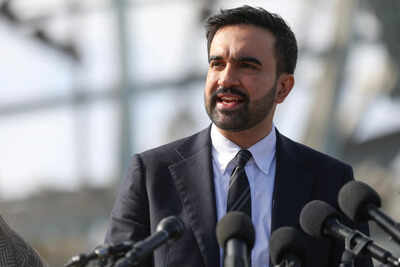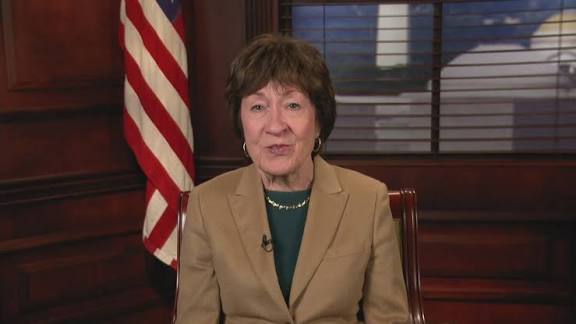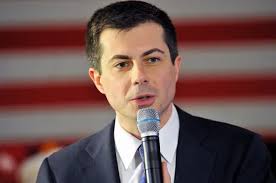Rahm Emanuel Joins CNN: global affairs commentator,Stock Trades Under Scrutiny
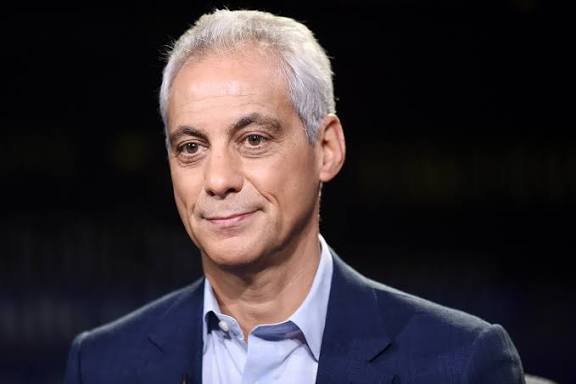
Rahm Emmanuel has joined CNN as Senior Political and Global Affairs Commentators. Today we will discuss about Rahm Emanuel Joins CNN: global affairs commentator,Stock Trades Under Scrutiny
Rahm Emanuel Joins CNN: global affairs commentator,Stock Trades Under Scrutiny
On February 13, 2025, CNN announced that Rahm Emanuel had joined its ranks as a Senior Political & Global Affairs Commentator, a move that sent ripples across media and political circles. With his long résumé—including roles as White House Chief of Staff, Congressman, Chicago mayor, and U.S. Ambassador to Japan—Emanuel brings to the network a wealth of experience in U.S. politics and global diplomacy.
Yet, if his professional credentials generate headline appeal, so too do questions about his past financial dealings. In particular, reports of suspiciously timed stock trades have resurfaced, drawing scrutiny about the intersection of public service and private gain.
In this article, we examine Emanuel’s new media role, his political trajectory, and the controversies around his investment behavior—and consider what this means for media ethics, public trust, and the broader debate over stock trading by public figures.
1. From Power Broker to CNN Pundit: The Latest Career Step
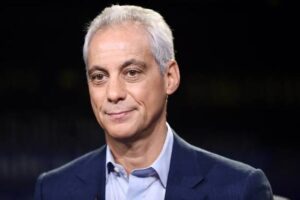
1.1 CNN Role & Mission
CNN describes Emanuel’s appointment as part of its effort to enhance its analytical and commentary offerings. According to its press release, Emanuel will contribute to on-air programming, blending domestic political insight with international affairs commentary. Variety similarly noted that his role is aligned with CNN’s positioning to feature voices that can speak credibly on global issues.
Media outlets have framed the move as a strategic play. The Hollywood Reporter called him a “veteran politician” whose participation bolsters CNN’s analytical gravitas. Some pundits read this as a bid by the network to compete more aggressively with cable rivals by recruiting former high-level practitioners of politics and diplomacy.
Emanuel is expected to appear in CNN’s major political shows and global verticals. His first appearance reportedly came shortly after the announcement.
1.2 Political & Diplomatic Background
To understand what Emanuel brings to the table at CNN, one must trace his political and diplomatic journey:
Congressional and Legislative Roots: Emanuel served as U.S. Representative for Illinois’s 5th District from 2003 to 2009 and was Chair of the House Democratic Caucus.
White House Chief of Staff: He was Barack Obama’s first Chief of Staff (2009–2010), playing a central role in legislative strategy and political operations.
Mayor of Chicago: From 2011 to 2019, Emanuel prioritized school reforms, public safety initiatives, infrastructure, and economic competitiveness.
Ambassador to Japan: Under President Joe Biden, Emanuel served as U.S. Ambassador to Japan from 2022 until January 2025, focusing on U.S.–Japan relations amid intensifying regional tensions.
His years in diplomacy give him a vantage point for commentating on alliance politics, East Asia strategy, technology diplomacy, and U.S. foreign policy.
Given his insider experience, he enters CNN’s commentator roster with credibility—but also exposure to scrutiny.
2. The Storm Clouds: Allegations of “Suspiciously Timed” Trades
Shortly after news of his CNN appointment broke, renewed attention turned to Emanuel’s financial record. Among the key revelations:
2.1 CoreWeave & AI Cloud Trade Timing
In November 2024, The American Prospect published a report titled “Rahm Emanuel’s Suspiciously Timed Stock Trades.” It alleges that between 2021 and 2024, while serving as ambassador, Emanuel made multiple high-dollar trades in companies connected to cutting-edge tech sectors.
One standout example: on September 29, 2023, Emanuel reportedly purchased $250,000–$500,000 in stock of CoreWeave, a cloud computing/AI-compute firm. The following day, the Japanese government announced a $320 million subsidy to Micron Technology—a move that would benefit chip and memory production-related firms, impacting CoreWeave’s supply chain. The timing raised eyebrows, particularly since Emanuel publicly praised the subsidy as symbolizing deeper integration of U.S.–Japan supply chains. Some observers infer that he may have anticipated the announcement.
2.2 Other Trades During Ambassadorship
Beyond CoreWeave, the reporting cites additional transactions:
Ocient: On March 8, 2024, Emanuel allegedly bought $100,000–$250,000 worth of stock in Ocient, a data analytics firm.
Monroe Capital: Around July 2024, he made a purchase valued between $50,000–$100,000 in Monroe, a middle-market lending firm involved in collateralized debt obligations.
Other holdings included Midwestern municipal bonds, Apollo Debt Solutions BDC, and Linden Executives LLC, a health care–oriented private equity firm.
Taken together, the pattern suggests Emanuel was actively investing during his diplomatic tenure—raising questions about conflicts between his public role and private portfolio decisions.
2.3 Earlier Stock Sales: Freddie Mac Case
These recent revelations echo past controversies. In 2011, Business Insider (and others) reported that as a Congressman in 2003, Emanuel sold up to $250,000 of Freddie Mac stock just days before the share price dropped by 10%. While not proof of illegality, critics questioned the timing, noting his former ties to Freddie Mac and oversight roles relevant to that sector.
CBS News also covered this, noting that the sale occurred before a “blind trust” intended to prevent conflicts was formally in effect. Defenders of Emanuel pointed out that stock disclosures and trust mechanisms make intent harder to prove, and that subsequent performance of Freddie Mac may not have resulted in direct gain from the sale.
3. Parsing the Allegations: Ethical, Legal & Reputational Risk
The resurfacing of these trades compels us to ask: What do they imply—and how might they affect Emanuel, CNN, and public trust?
3.1 Legal Layers: Insider Trading & Disclosure Rules
At first glance, some might equate suspicious trading timing with insider trading. But proving insider trading requires showing that:
The trader had material, nonpublic information (MNPI).
They acted on it knowingly.
They profited or avoided loss by trading on that information.
Many of the Emanuel transactions occurred while he held public office. That raises the possibility that he might have had access to nonpublic insight into policy decisions or government actions. Critics suggest that timing alignment (e.g. buying just before public announcements) is consistent with exploitation.
However, proving that kind of knowing misuse of information is difficult. The law provides safe harbors, disclosure requirements, and thresholds for enforcement. Moreover, not every trade that appears well-timed meets the legal standard of illicit behavior.
Nonetheless, regulatory changes raise the bar: for example, under the SEC’s revised rules for 10b5-1 trading plans, insiders must wait cooling-off periods, certify intent, and cannot use overlapping plans. These reforms reflect growing regulatory scrutiny. Even absent definitive proof, the patterns may invite investigations or inquiries.
3.2 Ethical & Reputation Risks
Legal liability is only part of the equation. For a commentator and public figure, reputational capital is critical. Emanuel’s role at CNN now positions him as an opinion shaper and political interpreter. Any suggestion of financial self-interest—especially when linked to public office—can erode credibility.
Media organizations themselves are sensitive to optics. CNN’s decision to bring in a former powerful insider must weigh the benefits of inside perspective against potential accusations of bias or conflicts. Critics may question whether Emanuel’s investments intersect with subjects he might cover or opine on—for instance, technology, trade policy, or East Asia.
Certainly, adversaries may seize on these past trades to question his motives, particularly when he comments on industries in which he previously held positions.
3.3 Path Dependency & Burden of Transparency
To defend against such concerns, Emanuel and CNN may need to embrace heightened transparency:
Full disclosure of his holdings and past transactions.
Explanation of any compliance steps taken (e.g., blind trusts, recusal from commentary on relevant companies).
Clear firewall between commentary and investments.
Absent such clarity, public skepticism can fester—and narratives of insider advantage or media–money collusion may gain traction.
4. Implications for CNN, Media & Politics
Emanuel’s appointment and the surrounding scrutiny play out at the crossroads of media strategy, ethical accountability, and political optics. Here are the broader implications:
4.1 CNN’s Strategy: Insider Voices with Risk
CNN is doubling down on commentary by former practitioners of high-level power. Emanuel joins a wave of networks bringing in ex-officials to boost analyst rosters. The rationale is that insider experience can deepen storylines, provide color, and attract audiences.
But the risk is that commentary might be perceived as agenda-driven or self-interested. Stations may face pressure to police conflicts more strictly. CNN will want to ensure Emanuel’s commentary remains independent and trustworthy, lest critics allege he’s promoting personal or overlapping interests.
4.2 Public Trust & Media Credibility
Media outlets already grapple with perceptions of bias. When a network hosts someone with a contested financial history and political pedigree, it must defend against claims that the commentator is pushing narratives aligned with personal asset positions or future ambitions.
Emanuel, in turn, must carefully navigate commentary—avoiding subjects where he holds stakes or fully disclosing relevant connections. Otherwise, his analytical judgment might be undermined in the eyes of skeptics.
4.3 The Broader Debate: Stock Trades by Public Figures
Emanuel’s case is part of a larger discussion: should public officials, diplomats, or commentators be allowed to trade actively in sectors subject to government policy?
Proposals have ranged from mandatory blind trusts or divestiture to full bans on trading for certain officeholders. Critics argue that even the appearance of conflict can corrode trust, while defenders counter that such measures infringe on individual financial rights.
Emanuel’s situation may act as a test case: if public scrutiny tightens, networks and political institutions may impose stricter guidelines on commentary roles and financial transparency.
5. What to Watch Moving Forward
As Emanuel settles into his role at CNN, key developments to monitor include:
Disclosure Statements
Will Emanuel publicly release a comprehensive inventory of holdings, past trades, and measures he has taken to avoid conflicts? Transparency could shape public perception.Commentary Boundaries & Recusal
Will CNN and Emanuel adopt policies to recuse him from commentary on companies or industries tied to his investments or past actions?Regulatory Inquiries or Journalistic Scrutiny
Investigative journalists or even regulators may probe whether any of his trades violated laws or ethical norms—especially those linked to public announcements or foreign government actions.Audience Reception & Criticism
Will viewers accept him as a credible voice, or will controversies overshadow his analysis? How media critics discuss him will influence his standing.Future Political Ambitions
Many observers believe Emanuel may be eyeing a 2028 presidential bid. His CNN platform is a potent megaphone—but also a liability if his trades become a political vulnerability.
6. A Balanced Assessment
Rahm Emanuel’s addition to CNN brings undeniable advantages—and notable risks.
On the upside:
He provides firsthand experience in diplomacy, policymaking, and political strategy.
His presence can deepen conversations on U.S.–Japan relations, trade, and global challenges.
His network of influence could help CNN access top-tier sources.
But the challenges are equally significant:
Past investment behavior, especially during public office, places him under a microscope.
Ethical questions about impartiality, bias, or influence will follow him into commentary.
Without explicit transparency, he—and CNN—may be vulnerable to criticism of conflict of interest.
At stake is more than one pundit’s reputation. This episode underscores a broader tension: modern media increasingly blurs the lines between political actors, commentators, and journalists—and the public demands rigor, accountability, and ethical clarity.
How useful was this post?
Click on a star to rate it!
Average rating 0 / 5. Vote count: 0
No votes so far! Be the first to rate this post.
About the Author
usa5911.com
Administrator
Hi, I’m Gurdeep Singh, a professional content writer from India with over 3 years of experience in the field. I specialize in covering U.S. politics, delivering timely and engaging content tailored specifically for an American audience. Along with my dedicated team, we track and report on all the latest political trends, news, and in-depth analysis shaping the United States today. Our goal is to provide clear, factual, and compelling content that keeps readers informed and engaged with the ever-changing political landscape.
